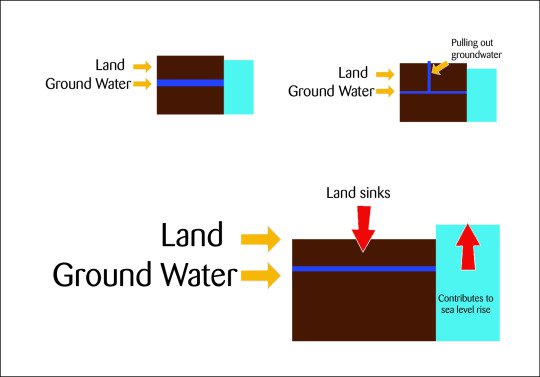Question Your World: Is Our Coast Sinking?
You’ve probably heard by now that the Norfolk, Hampton and Virginia Beach areas are experiencing the fastest sea level rise on the East Coast. How could this be happening? Like many other complex issues there are a few variables at play. We discussed some of the global reasons for sea level rise, but what about our coastal areas right here in Virginia? Are the rumors true? Is our coastal area sinking?
As global changes impact various parts of the world, we can see some changes happening right here as well. We’ve recently experienced the warmest months and years ever recorded, and our storm surges are getting more dramatic. So how is that impacting the coast? What is causing our sea levels to rise faster than our neighbors in North Carolina or Maryland? This noteworthy sea level change is the result of a few things working in tandem.
Let’s keep in mind that many factors are contributing to the changes here in Virginia. Distant glaciers that are melting all over the globe are adding more water to the oceans, thus causing a slight sea level rise. In addition to this is thermal expansion, where water molecules physically expand when heated - like what happens when you heat up water on a stove and it rises in your pot. These two factors alone are a handful, but we’ve got another special situation here in Virginia. Our coastal areas are sinking.
Yes, you read that correctly, sinking. As we pump out large amounts of groundwater for our uses (agriculture, sanitation, consumption, etc) we are effectively causing the coast to sink a little. The groundwater below the land is partially responsible for keeping the land elevated, and as we remove groundwater, we are removing more and more stuff that the land was sitting on. This process is known as subsidence and is one of the reasons that the Norfolk area sees more flooding each year.

With several factors all acting at once, we need more than one option as a resolution. Through enhanced eco-friendly agricultural practices, a more urgent water conservation effort, reducing the use of energy methods that produce heat trapping gases and smarter urban planning we can certainly impact our current situation. No single option alone will be enough - many different processes will need to be put in place to address the global and regional variables responsible for this record breaking sea level rise.
Only with a concentrated effort combining several plans together can we reduce this impact on our beautiful coastal areas. This will require action from several industries, but by working together can make a difference. Let that sink in and not just our coast.
Produced by Science Museum of Virginia under award # NA15SEC0080009 from the Environmental Literacy Grant (ELG) program of the National Oceanic and Atmospheric Administration (NOAA), US Department of Commerce. Statements, findings, conclusions, and recommendations are those of the museum and do not necessarily reflect views of NOAA or US Department of Commerce. Funded in part by Virginia Environmental Endowment.


